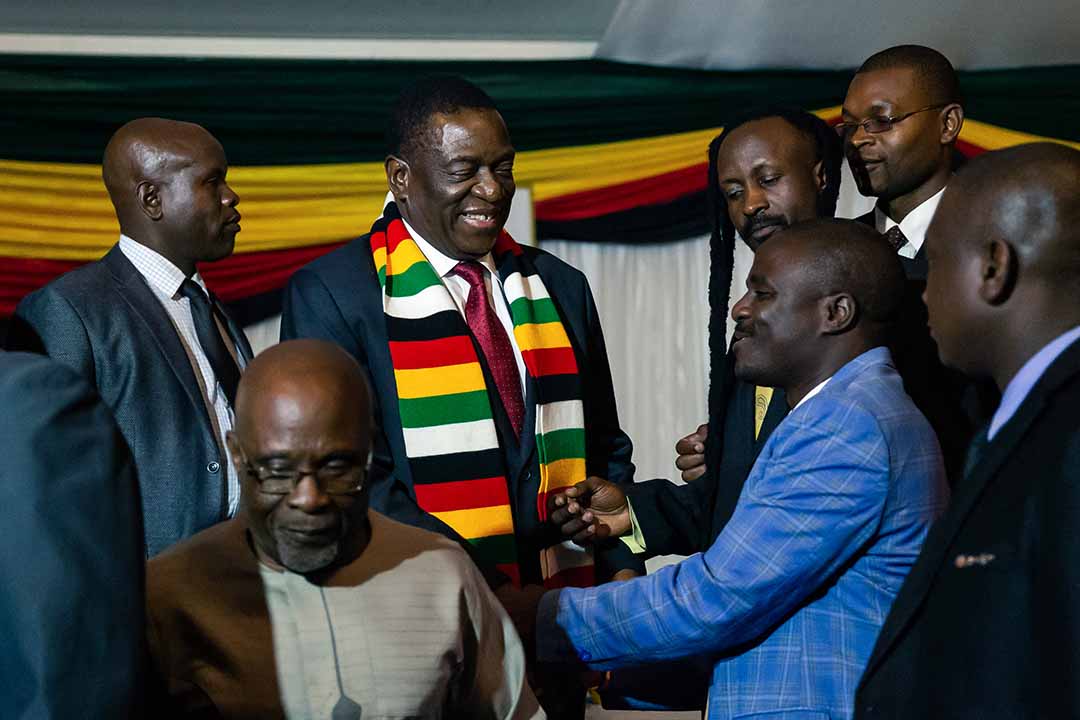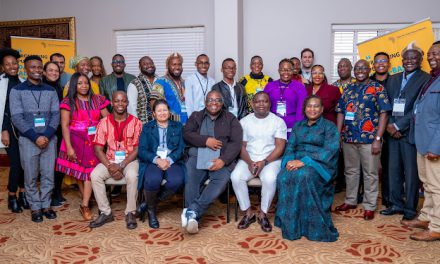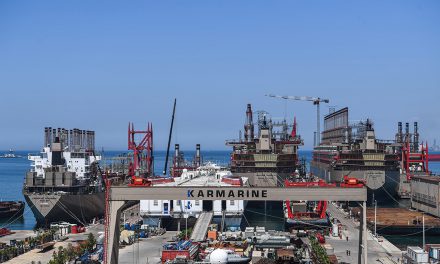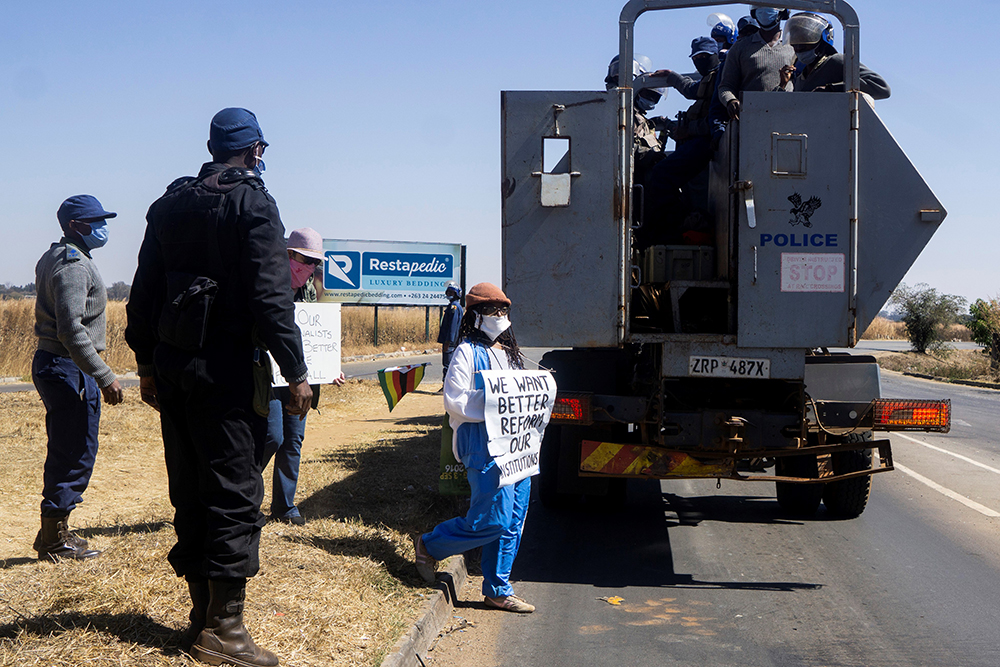Reviewing the foundation for a meeting of minds
A recent op-ed by Dr Ibbo Mandaza, director of the SAPES Trust, called for a paradigm shift to achieve reform in Zimbabwe, a country clearly in deep crisis. One of the options he proposed was a call for a National Dialogue process. The purpose of this piece is to expand on factors to consider for calling for such a process. National Dialogues are defined as “nationally owned political processes aimed at generating consensus among a broad range of national stakeholders in times of deep political crisis, in post-war situations or during far-reaching political transitions”¹. They may also be defined as broad-based, inclusive and participatory negotiation platforms involving all sectors of society brought together to negotiate and strengthen the social contract between citizens and the state.

Ibbo Mandaza is a Zimbabwean academic, author and publisher. He is convenor of the SAPES Trust Policy Dialogue Forum; and co-convener (with Tony Reeler) of the Platform for Concerned Citizens (PCC).
In recent years, we have witnessed several attempts to conduct National Dialogues as critical tools in the prevention of conflict and for managing political crisis and transitions. However, while there may be wide ranging inclusive buy-in amongst the different stakeholders, a limitation regarding conceptual clarity persists which in turn limits the likely success of the process. Agreeing on the objectives of a National Dialogue may seem like a straight forward exercise but if the foundation of the process is not correctly laid there will be fissures of concern later in the process.
According to the National Dialogue Handbook: A Guide for Practitioners the objectives of National Dialogues tend to be context dependent: “They may focus on a more narrow set of specific or substantive objectives (i.e., security arrangements, constitutional amendments, truth commissions, etc.), or on broad-based change processes, which may entail (re)building a (new) political system and developing a (new) social contract.” It is for the Zimbabwean stakeholders to decide and agree on the objective before the process commences. If this part of the process is not carefully considered it may result in contestation over who the included stakeholders are leading to mistrust, fear, nefarious agenda setting etc. The Handbook distinguishes between two main types of National Dialogue, identified according to the function they seek to fulfil:
- A shorter-term endeavour, undertaken strategically as a means to resolve or prevent the outbreak of armed violence
- Key aims: breaking political deadlocks and re-establishing minimal political consensus, while further reform and steps toward change can be negotiated
- Key characteristics: with more limited mandates, these tend to be smaller in size and shorter in duration. They are often easier to manage due to the restricted number of actors who may be involved, but also may reflect a less inclusive structure, whereby broad-based societal buy-in for desired changes can be difficult to generate.

Zimbabwean President Emmerson Mnangagwa (3rdL) shakes hands with leaders of political parties who contested him in the last presidential elections after a dialogue meeting hosted at the State House in Harare on February 6, 2019. – Zimbabwe’s main opposition leader snubbed an invitation by President Emmerson Mnangagwa to join a political summit on February 6, 2019 aimed at alleviating the country’s deepening crisis, weeks after security forces crushed protests over the worsening economy. (Photo by Jekesai NJIKIZANA / AFP)
National Dialogues as mechanisms for fundamental change
- Efforts with a longer-term trajectory, envisioned as a means to redefine state-society relations, or establish a new ‘social contract’
- Key aims: far-reaching institutional and constitutional changes
- Key characteristics: broad mandate and often fairly large in size. Seeking to include large strata of society and generate widespread support. They are confronted with the challenges of managing large-scale processes.
In the case of Zimbabwe, it may be wise to adopt a more hybrid model incorporating elements from both approaches as it may be more relevant for a longer sustained political solution. As stated, the political context in which the implementation of a National Dialogue takes place has a direct impact on the success of the process. Huma Haider, an independent research consultant, lists the following as factors to be considered:
- Political will: the greater the level of political will and elite agreement on the way forward, the greater the likelihood of successful outcomes and implementation.
- Links to other transitional processes: National Dialogues need to be embedded in larger change processes in order to promote real structural change. If disconnected to other political processes, such as constitution-making, they are likely to be counter-productive.
- Common ground among parties: the absence of diametrically opposed political camps can make it more likely to arrive at a common view or shared objectives in dialogue, allowing for the process to move forward. In contrast, drastically different views can exacerbate distrust and stall the process.
- Public buy-in: public support or lack thereof can enable or constrain progress in the National Dialogue process. The degree of buy-in is influenced by the availability of public information, good communication, and media engagement – all of which affect the level of transparency and understanding of the process.
- Learning from past experience: National Dialogues have benefitted from dialogue expertise and learning from past National Dialogues.
- The role of external actors and national ownership: support (e.g. political, financial and technical support) or resistance of external actors can influence the degree of success of national dialogues. It is important to strike a balance between external support and national ownership. The latter can increase the likelihood of public buy-in, perceptions of legitimacy – and chances of implementation.
Haider also states that in conjunction with political context factors, design or process factors are important, as these play a role in influencing the likelihood of reaching sustainable agreements. Key process factors include:
- The degree of inclusion and participation: the vast majority of literature on this subject emphasises that the transformative potential of national dialogues can only be realised if they are genuinely inclusive of society. In order to be truly inclusive, it is necessary to help balance power asymmetries and ensure actual decision-making power. Highly inclusive and participatory national dialogues may render discussions unwieldly, however, and make it difficult to resolve key political questions. The success of national dialogues can depend in large part on finding the right equilibrium between efficiency and inclusiveness.
- Representation and selection criteria: established selection criteria and procedures for participants in national dialogues can support or hinder the broad representation of different social and political groups. Transparency in the criteria is significantly important.
- Objective and scope-setting: it is important to avoid overburdening mandates and agendas. It can be challenging to strike a balance between the breadth of the mandate, efficiency and independence. While a narrower mandate can be more manageable and efficient, it can limit the room for change and may contribute to the persistence of an elite-led process. Clarity and relevance to local populations are key characteristics to adopt in deriving a suitable mandate and agenda. Addressing development issues and peace dividends at the outset can be important to the success of national dialogues.
- Institutional framework and support structures: a comprehensive support structure of important actors close to competing parties can help participants to be prepared (with the necessary expertise and tools), to compromise and to build coalitions, allowing them time to agree on common positions. Such structures do not, however, necessarily improve the quality of participation or guarantee implementation.
- Role of authority figures: a credible, broadly accepted, independent, respected and charismatic convenor, mediator or facilitator can significantly affect the strength of the national dialogue, indicating seriousness and trust in the process.
- Decision-making procedures: these can enable or constrain the ability of national dialogues to reach an agreement and implement it. While consensus can help to expand agendas and to include often excluded voices, an inability to reach consensus can benefit the more established forces, as the absence of movement can mean preserving the status quo. Consensus-based decision-making needs to be complemented by other pragmatic mechanisms where deadlocks can be broken, such as the use of working groups.
- Confidence-building measures: national dialogues must be accompanied by a series of steps to attenuate tensions, in order to establish a level of “working trust” to engage in a meaningful dialogue. Trust-building is important throughout all phases in order to ensure that agreements are also implemented.
- Provision for implementation: it is necessary to ensure that sufficient funds for implementation, expertise and accountability mechanisms are in place, such that key actors may feel bound by what has been agreed. Transitional bodies and/or new institutions are often set up to implement the outcomes. Implementation can be tough if participants have made unrealistic decisions, if political will is absent, or if external actors fail to provide necessary support.
It is important to emphasise that even with all the above factors in place, the process can still fail if the commitment from those in power are merely a means to “demonstrate” a willingness to participate in the process but are not fully vested as seen in previous efforts:
“They want to say put in place electoral reforms that will ensure that you lose and we win. And we’re saying no. That will never happen anywhere in a modern constitutional democracy, that a political party that has come into government on the back of a new negotiated constitution, on the back of a new negotiated Electoral Act, comes up with reforms that will reform it out of power. Because the reforms they’re talking about are clear codes to say come with reforms that will ensure that you’re out.” – Former Politburo member and Cabinet Minister, Professor Jonathan Moyo.
Today we began a national dialogue, the fulfilment of my pledge to engage & consult all Presidential aspirants on ways to move Zimbabwe forward. Let us all put dialogue over conflict, and collaboration over confrontation. Individually we are a drop, together we are a mighty ocean pic.twitter.com/TdIrtRYnve
— President of Zimbabwe (@edmnangagwa) February 6, 2019
This is the difficulty, and at times immovable challenge, in setting up National Dialogues. If Zimbabwe is to succeed, it may require certain difficult conditions to be agreed upon before the process is implemented. This may be a stumbling block too heavy to move across the start line. Otherwise, it may end up being merely a process of going through the motions without a chance of real reforms being formulated and agreed on.
In short, if the National Dialogue process is to succeed, the following foundation strengthening factors must be applied:
- if there is no trust in the stakeholders the process will fail before it starts
- a neutral convenor must be accepted by all parties
- the process must be insulated from undue political or external influence
- insisting on transparency at all levels of the process
- outcomes from the process must be acted on and directed to their relevant streams – policy, legislation or strategy.
¹ Marike Blunck et al., National Dialogue Handbook: A Guide for Practitioners; Berghof Foundation, 2017
Craig Moffat, PhD is the Head of Programme: Governance Delivery and Impact for Good Governance Africa. He has more than 17 years of practical experience working for government institutions and multilateral organisations. He was previously employed by the South African Foreign Service, where he worked extensively at identifying and analysing security threats towards South Africa as well as the southern Africa region. Previously, he was the political advisor for the Pretoria Regional Delegation of the International Committee of the Red Cross. He holds a PhD in Political Science from Stellenbosch University.







